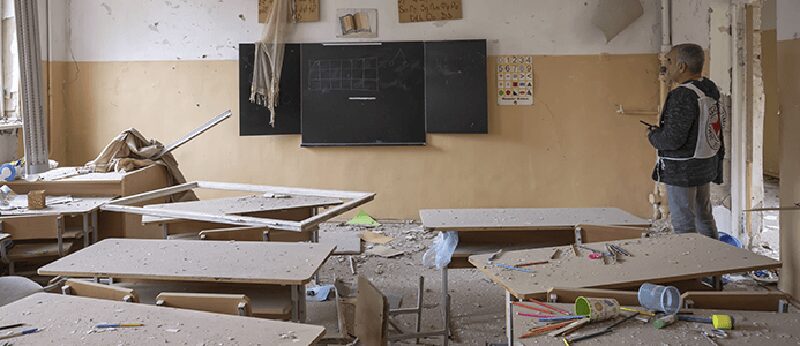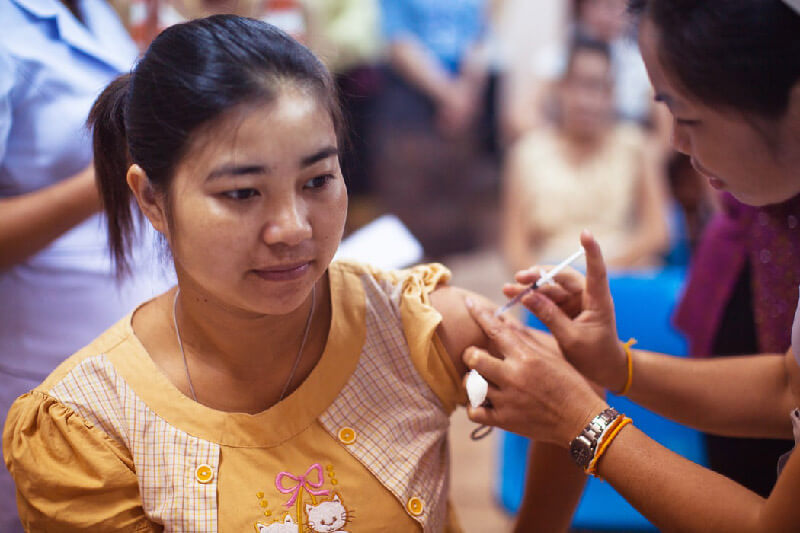Every holiday season, we all hear about the alleged war on Christmas in the United States. On any social media platform, users are bound to find someone outraged about the use of more inclusive phrases like “Happy Holidays” and resentful about these perceived attacks on Christmas.
For someone like me, a Hindu American, the xenophobic rhetoric deployed against the phrase “Happy Holidays” is deeply hurtful because it implies that I, and millions of others like me, are not truly American, that our identities don’t belong here. Simple, common words we use can carry greater meaning than perhaps intended. The phrases we use must evolve to reflect the diversity of our society and to promote a more inclusive future.
To say “Happy Holidays” is not to attack Christianity, or any religion for that matter. Its use does not mean the replacement of holiday-specific salutations. When you know someone’s religious beliefs, there is nothing wrong with wishing someone well for a specific holiday like Christmas. However, society must distinguish between private circles, where you already know the beliefs of your friends and family, and society as a whole, where beliefs are much more diverse and where diversity should be respected.
When a society deems one religious salutation the norm in the public sphere — a mere example being “Merry Christmas” — society isolates those who don’t conform and spawns hurtful, xenophobic rhetoric, whereby people are told they are inferior, that they should get out of the country or shut up and conform. This dangerous tendency not only undermines the free exercise of religion, but it is also extremely harmful to those whose beliefs differ from the majority’s. In essence, when a society refuses to treat all religions in an equal and positive manner, the implication for religious minorities is that our views don’t matter and that we’re inferior members of society, which only perpetuates discriminatory practices.
Some people may question how great a difference the phrase “Happy Holidays” can actually make. But the truth is that, even though it has been a source of division, “Happy Holidays” can in fact be a source of unity. By apportioning respect for every religious belief, this phrase makes clear that one’s religious beliefs do not determine whether or not they belong to society. This phrase makes clear that religious minorities do not have to give up their traditions; it removes pressures to conform and gives everyone the freedom to choose how they want — and if they want — to find faith. This acceptance is beneficial to everyone in society, regardless of their stance on religion, as it allows us to celebrate our differences and serves as a catalyst for societal progress toward a more accepting and inclusive world.
I know from personal experience this phrase can work. While Georgetown University is a Catholic institution, its decision to use “Happy Holidays” in its official messaging to students before winter break, and consequently, to neither assume nor demand adherence to any one ideology, has helped create an environment in which members of many different faiths can be part of the community and interfaith discourse is possible. While I can only speak with regard to myself, I know this neutral messaging has helped me feel welcome at Georgetown, though everyone should take note of others’ experiences with religious tolerance or intolerance at Georgetown.
Certainly, there is work to be done in achieving full religious tolerance and acceptance at Georgetown, but the administration’s decision to use “Happy Holidays” in official messaging has definitely made a positive difference in making tolerance a reality, and the phrase can do the same throughout the country.
So when the next holiday season rolls around and we all prepare to celebrate our holiday of choice — if we choose to at all — when we hear those inevitable mentions of the war on Christmas, remember that the use of inclusive language like “Happy Holidays” has the potential to promote acceptance and tolerance in the United States. By using and embracing this phrase in the public sphere, all Americans can be a part of creating and normalizing this tolerance and harmony.
Arjun Badami is a first-year in the College.














